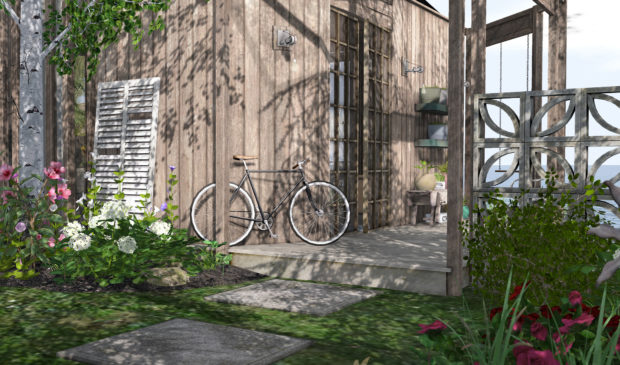Council members concerned about fees for ADUs
Friday, September 8, 2017 by
Jack Craver Council Member Delia Garza is worried that proposed increases in building fees are going to hit middle-income homeowners who are seeking to build accessory dwelling units the hardest.
At a Thursday City Council meeting over the proposed budget for the upcoming fiscal year, Garza pressed the head of the Development Services Department on the fee increases, suggesting that they either might not be necessary or could be redesigned to spare some of the lower-budget projects.
ADUs, also commonly known as garage apartments or granny flats, are viewed by some members of Council as a key affordability tool. Homeowners can build them and lease them to a tenant as a way to generate income and offset the cost of property taxes. Those rental units also ideally provide more options for those seeking low-cost housing.
Under the proposed fee schedule, a person seeking to build a 1,100-square-foot ADU will go from paying $342 to $748 for the plan review and $550 to $1,091 for the building inspection, for a total increase of $947.
Garza presented an example that she had been given by a home designer she had talked with that suggested the fee increases would amount to far more. However, Development Services Director Rodney Gonzales noted that the example she presented included a number of fees specific to a site. A property that includes protected heritage trees or that is in an area that is covered by the McMansion ordinance, for instance, would result in higher fees.
So far this year, 305 ADUs have been built in the city. There might be more, suggested Garza, if the process weren’t so costly.
“I think they’re not being built because we have these fees and these institutional barriers that are preventing families in my district from building these,” she said.
The fees, said Gonzales, are merely a reflection of the time staff has to spend complying with city regulations. In an interview with the Austin Monitor, a spokesperson for the department said that the fee increases were in response to a study that found that the existing fees did not cover the cost of service that Development Services staff was providing.
Indeed, argued Gonzales, the review and inspection fees are likely lower barriers to building ADUs than other regulations, such as the one that requires people to build a sidewalk along with an additional unit on their property.
Garza accepted Gonzales’ explanation and suggested that Council should do more to reduce regulations that make development a lengthier and costlier process.
Garza is therefore hesitant to support the 51 additional full-time positions that Development Services has requested Council approve as part of the Fiscal Year 2017-18 budget. Gonzales has described the positions as necessary to deal with the steadily increasing volume of building permits that have resulted from Austin’s rapid growth. He said that staff has only been able to keep the backlog of cases “at bay” by working a significant number of overtime hours.
The volume, said Garza, was the product of the regulations as well as population growth.
“My hope and goal would be to reduce the regulations for ADUs,” she said. “When you’re a big developer and you have a giant budget, you can absorb those costs. But when you’re someone using a 401(k) (to fund the building), a $900 difference could be a deal-breaker.”
Other Council members said they were interested in exploring ways to reduce the regulatory burden and cost for ADUs. Council Member Alison Alter wondered whether there could be income-based fee waivers, while Council Member Ann Kitchen suggested establishing an expedited review process for ADUs, similar to the process already put in place for developers willing to pay extra.
Gonzales said there were legal constraints on how the city could discount fees. It could not offer lower fees for some customers by raising them for others; the lower fees would have to be subsidized from some other type of funding source.
Photo by Rooky Yootz made available through a Creative Commons license.
The Austin Monitor’s work is made possible by donations from the community. Though our reporting covers donors from time to time, we are careful to keep business and editorial efforts separate while maintaining transparency. A complete list of donors is available here, and our code of ethics is explained here.
You're a community leader
And we’re honored you look to us for serious, in-depth news. You know a strong community needs local and dedicated watchdog reporting. We’re here for you and that won’t change. Now will you take the powerful next step and support our nonprofit news organization?









